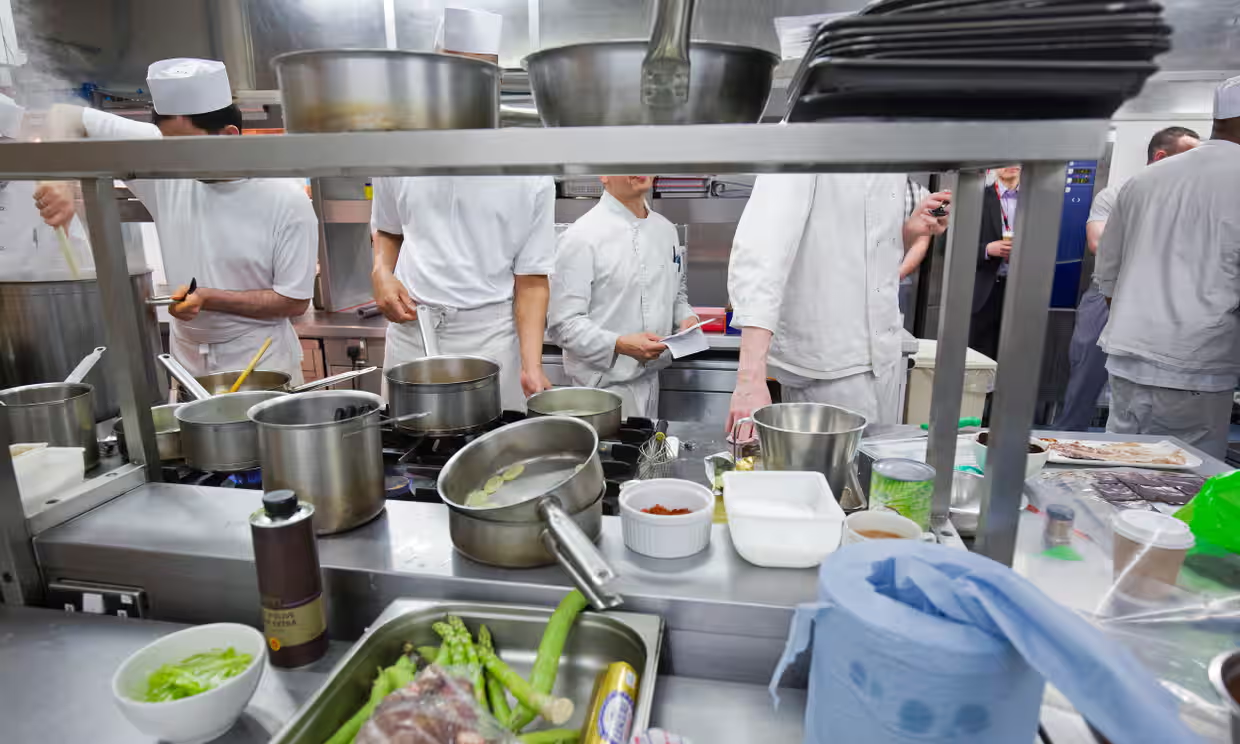How Nordic Prisons Serve Inmates: A Lesson in Respect, Dignity, and Nutrition
Inmates cooking, dining, and sometimes even foraging together – it’s a model that highlights the stark contrast between the humane prison systems of Scandinavia and the rat-infested facilities in the UK.
During my three-week journey through Scandinavian prisons, I explored how prisoners in the region are fed. You might wonder why we should care about the food inmates receive. Research shows that good nutrition improves well-being, safety, and security in prisons and can even aid in rehabilitation, potentially reducing reoffending rates.
Nordic countries, known for their low recidivism rates—only around 30% of prisoners return to prison within two years—take a fundamentally different approach to incarceration compared to the UK, where punitive practices prevail. As the founder of a UK charity focused on improving prison food, I wanted to see how these countries do it.
A Look at Storstrøm Prison, Denmark
In Denmark’s high-security Storstrøm prison, 65% of inmates cook their own meals. They share kitchens with groups of six, plan their meals, manage a budget, and shop for ingredients in the prison’s own grocery store. Inmates dine together, often joined by prison officers. Those less experienced in cooking quickly learn from their peers, gaining essential kitchen skills.
One inmate described how cooking has helped him: “I live healthily, eat clean, work out, and keep in touch with my family. I can even bake cakes for my kids when they visit. This environment puts me in the best possible position to reintegrate into society.”
In the prison’s main kitchen, the catering manager and a team of inmates prepare meals for everyone. The manager enrolls each inmate in a four-year culinary diploma program, ensuring they receive the same qualifications as professional chefs. I witnessed inmates carefully preparing dishes like homemade Greek meatballs with couscous and feta, all under the guidance of an in-house nutritionist who ensures the meals meet Danish legal standards for nutrition.
The Stark Contrast to the UK
In the UK, prison food is far from ideal. A recent food poisoning incident and rat-infested kitchens highlight the severe issues plaguing the system. In stark contrast to Scandinavia, UK prisoners often eat unhealthy, tasteless meals alone in their cells, sometimes even next to their toilets.
At Sulkava prison in Finland, I observed inmates fishing in the lake for their meals and foraging for mushrooms and berries. One inmate shared that being able to cook for himself gave him a sense of normalcy and self-sufficiency. In Helsinki’s Suomenlinna prison, I watched as men lined up at a salad bar and helped themselves to fresh rye bread.
While Nordic prisons benefit from smaller populations and more public funding, there are positive examples in the UK too. At HMP Brixton in London, all meals are made from scratch. Homemade spice rubs, marinades, and sauces add flavor to the poor-quality meat, and prisoners make their own pastry for quiches and pies. Brixton’s leadership is committed to making every meal as healthy and appetizing as possible, but this is still a rare exception.
A Call for Change in UK Prisons
The charity I founded teaches inmates in England and Wales how to cook and grow food while training catering teams to provide healthier meals. However, prisons like HMP Brixton are outliers. Most prisoners are still eating low-quality food that harms their health and well-being, making rehabilitation more difficult.
Some inmates leave prison in worse health than when they entered, with serious consequences. For example, in April, an inquest into the death of Mohammed Azizi at HMP Norwich revealed that he had repeatedly complained that the food worsened his Crohn’s disease symptoms. His death was attributed in part to malnutrition.
It’s time to rethink how UK prisons operate. Catering teams need better training and inspiration. Prison grounds should be used to grow food, and self-catering facilities should be introduced in new and existing prisons. Even in Victorian prisons like Manchester, new kitchenette facilities are being implemented, demonstrating that change is possible.
Good food in prisons can reduce violence, improve mental health, and lower reoffending rates. A study by Think Through Nutrition at a young offenders’ institution in Aylesbury showed that nutritional supplements reduced disciplinary incidents by 37%.
As the prison population in England and Wales is expected to reach 114,800 by 2028, the need to rethink our approach to incarceration is urgent. Better food should be part of that solution.
In Scandinavia, I saw a prison system built on respect, rehabilitation, and equality, where inmates are given the opportunity to cook, eat, and learn about nutritious food. Respect, after all, is a good place to start.
